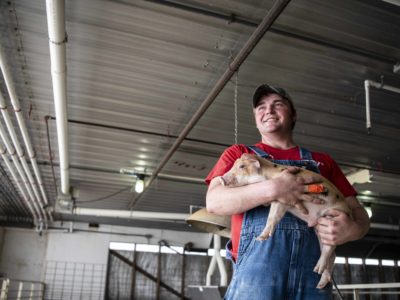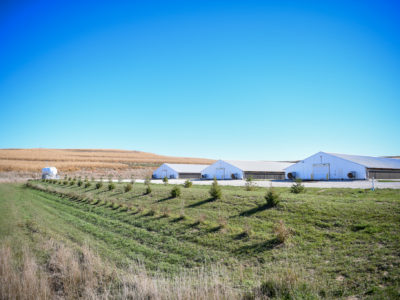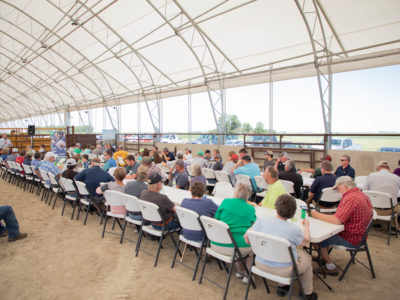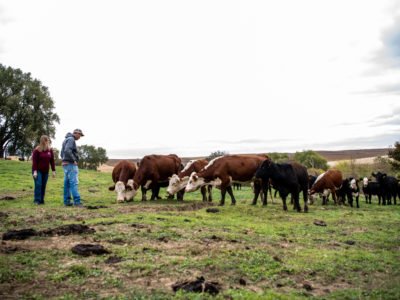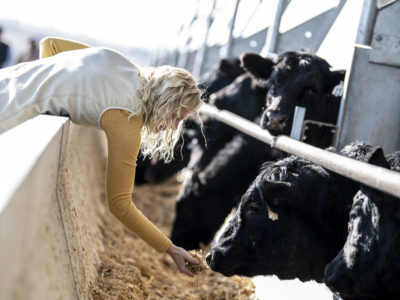Neighbor Relations
There are many steps to successfully growing a farm. One of the often-overlooked, yet possibly most important, steps is communicating with neighbors. Neighbor relations isn’t easy – every farm and family is unique, and each community is different.
It is crucial that you communicate your plans for the farm in a way that is confident and informative, but not offensive. While there’s no one-size-fits-all approach to having a conversation about farming practices, here are a few tips to help you prepare for a successful and beneficial visit.
1) Be personal.Include family members in the conversation about the plans to expand your farm. Be willing to talk about your family and what you do at your farm, in your community and why you enjoy the life you live.
2) Be specific. Provide details on what will go on once your new livestock barn is up and running. People like information. Explain, for example, how computer-automated systems control the environment for the livestock you care for. Offer insight as to why manure is used as fertilizer, how manure management plans dictate the amount of manure that is used on a given parcel of land and how the nutrient benefits soil and water quality.
3) Provide examples. Don’t talk in generalities. Offer examples about how you raise and care for your livestock, the various businesses and vendors you rely on to get the job done and agriculture’s benefits to the local economy (CSIF can help you find these statistics). Explain how manure will be applied, how the animals will be cared for, etc. If you’re planning to plant trees or do landscaping at the barn, be sure to share that with neighbors.
4) Welcome questions. Remember, two-way communication is best. Listen intently and be specific in your responses. Keep in mind that you’re not asking for permission to grow your farm. Instead, you’re providing information and answering questions to make the situation a win-win for both you and your neighbor.
5) Follow up. If you made commitments during the conversation, follow through with them. However, it is important to note that communication should not stop after the initial conversation. Let neighbors know when cement will be poured and that traffic may increase on certain days. After the barn is built, make sure to communicate with neighbors before applying manure. Most importantly, keep the lines of communication open.
It is important that neighbors hear about any changes being made to your farm from YOU, not other neighbors, not at the coffee shop or co-op, not through the town rumor mill, and not from the media. Do not let upset neighbors or activists tell your story. It’s been said that knowledge is power. Empower your neighbors to support your farm and local community by communicating openly and honestly with them.
Make plans today to visit with those you live near.
For more information, or assistance in developing a neighbor relations plan specific to your farm, please call 1-800-932-2436.
For information and talking points to help you prepare for conversations with neighbors and community members, be sure to visit these fact pages:

